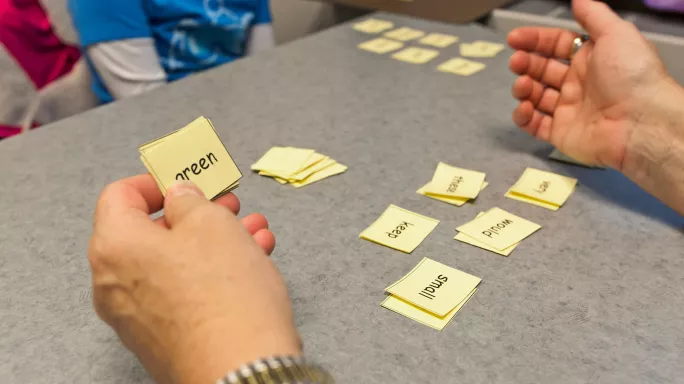Barak Rosenshine’s Principles of Instruction have reached seminal status at this point.
They can be traced back as far as a typed paper submitted to a US conference in 1982, which was almost identical to the 10 Principles of Instruction we know (and love) today.
In short, they don’t really tell us anything new.
Quick read: ‘I love teaching, but it’s a soul-eating profession’
Quick listen: ‘We have no idea if most things in education work’
Want to know more? The secret of great leadership? Putting staff first
Instead, however, they consolidate what good teaching looks like, breaking it down into digestible chunks. No faff, no gimmicks, just good instruction. And that’s why understanding them is so important for all NQTs.
Rosenshine’s principles: Are they applicable to me?
The magic of Rosenshine’s principles is that they are applicable to all teachers of all subjects and contexts. They focus on skills that teachers need to be successful in the classroom.
From a pedagogical point of view, all of the teacher standards are addressed or at least can be related to the individual principles; Rosenshine encapsulates how to effectively teach in a very clever nutshell.
All of this means that the approaches put forth are not subject-specific, so the theory and thinking behind each principle can be applied no matter what you teach.
What makes it so good?
Like all good pedagogical theory, Rosenshine’s principles are underpinned by classroom practice. Rosenshine makes direct links between research, theory and application: each of the 10 principles is presented in two parts, firstly looking at the research findings, and then how these can be used in the classroom.
The success of the 10 Principles of Instruction comes from its overwhelming simplicity and logic. Straightforward, research-based teaching that actually works in the classroom and doesn’t add to teacher workload.
Every teacher needs to know how learning actually works. What makes Rosenshine’s principles so valuable to NQTs is the way they link real-life classroom practice to more complex ideas surrounding cognitive psychology.
The simplicity of the practical strategies he suggests shows how these approaches are applicable to all subjects.
Teaching for teachers
Ideas for improving classroom practice are often packaged in a way that makes them inaccessible, by people who are detached from the reality of teaching students.
What resonates about Rosenshine’s research is that it links classroom observations to student outcomes, and the examples he gives show that he knows what children and teachers actually do.
Rosenshine also writes in a way that encourages development. It isn’t rigid advice, but instead makes you think and reflect (two processes that are also vital for newly qualified teachers).
Regardless of your route into teaching, to be truly outstanding, you need to be able to reflect and adapt your practice. Rosenshine’s principles offer a framework to do that, with a sharp focus on improving, rather than the frequently wordy and vague Teacher Standards.
Using the principles correctly
The principles are a guide to how to teach effectively. I recently had quite a heated debate with a very experienced educational professional about how these principles can’t (and shouldn’t) be made into a checklist exercise. For me, this kind of approach completely negates the thinking behind the original paper.
One of the best ways to engage with Rosenshine is to not think of the principles as a recipe; instead, think of them as more of a number of potential ingredients that can be combined depending on need.
Adam Riches is a specialist leader of education and lead teacher in English






